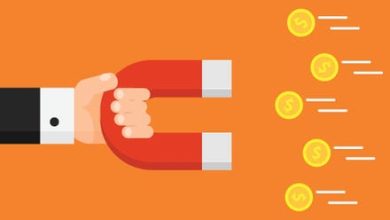Spending Psychology And How To Overcome Impulses To Stay On Budget

- Share to Facebook
- Share to Twitter
- Share to Linkedin
Young women showing their shopping bags after going on a spending spree.
getty
Through television, social media, texting, emails, and even your own friends, people today are constantly being urged to purchase some good or service. You are constantly told this next thing is what you need to increase your convenience, gain status, lose weight, become more beautiful, or have more fun. This bombardment of media can be difficult to overcome and may lead people to completely disregard their financial future to get that next thing. This is a discussion of spending psychology and how you can overcome spending impulses to stay on budget.
Spending Psychology
A 2014 study at the University of Michigan found that while feeling out of control of your situation can make you feel sad, making purchases can make you feel like you have agency and boost feelings of happiness temporarily. There is a good reason that shopping can be referred to as retail therapy.
However, you don’t just get a boost from spending. If you violate your own rules, like going over budget or splurging on something you’ve previously told yourself was too expensive, that can lead to further feelings of guilt or sadness. Professor Prelec at MIT refers to this as the “moral tax on consumption”.
Another psychological issue investors run into centers around the prevalence of credit cards. In a 1999 study by Prelec, it was found that in an auction, subjects that were only allowed to bid by credit card would bid twice as much as subjects who could only bid using cash.
Professor Burroughs of University of Virginia notes that the reason for this is that spending using credit cards doesn’t feel real. Because of the delay between the gratification today and the future bill, it is easier to spend larger amounts of money with our credit cards. Burroughs also notes that our feelings around time affects our spending habits by discounting the importance of having money in the future, leading investors to live paycheck to paycheck.
Trump Vs. Harris 2024 Polls: Trump Loses 5 Points In Latest Major Survey—But Still Leads Harris
Google Confirms Bad News For 3 Billion Chrome Users—You Will Still Be Tracked
Trump-Harris Swing State Polls: Harris Trails Trump In Most Key Battlegrounds—But Outperforms Biden
Your Budget
Too often, I find that people struggle to keep a budget. This sometimes occurs because they are comfortable and make much more money than they need, sometimes because they don’t want accountability, sometimes because they haven’t taken the time to prioritize their future goals, and sometimes because the topic of money is so stressful that they don’t want to think about it.
According to a 2024 MarketWatch survey, 66.2% of people in the United States live paycheck to paycheck. So, no matter how much money you make, you should keep a budget. That budget should be realistic or else you won’t be able to stick with it. You don’t need to track expenses daily, you just need to break down your non-discretionary and discretionary spending into categories and revisit monthly. Non-discretionary spending is going to be the spending that must happen every month.
function loadConnatixScript(document) {
if (!window.cnxel) {
window.cnxel = {};
window.cnxel.cmd = [];
var iframe = document.createElement(‘iframe’);
iframe.style.display = ‘none’;
iframe.onload = function() {
var iframeDoc = iframe.contentWindow.document;
var script = iframeDoc.createElement(‘script’);
script.src = ‘//cd.elements.video/player.js’ + ‘?cid=’ + ’62cec241-7d09-4462-afc2-f72f8d8ef40a’;
script.setAttribute(‘defer’, ‘1’);
script.setAttribute(‘type’, ‘text/javascript’);
iframeDoc.body.appendChild(script);
};
document.head.appendChild(iframe);
const preloadResourcesEndpoint = ‘https://cds.elements.video/a/preload-resources-ovp.json’;
fetch(preloadResourcesEndpoint, { priority: ‘low’ })
.then(response => {
if (!response.ok) {
throw new Error(‘Network response was not ok’, preloadResourcesEndpoint);
}
return response.json();
})
.then(data => {
const cssUrl = data.css;
const cssUrlLink = document.createElement(‘link’);
cssUrlLink.rel = ‘stylesheet’;
cssUrlLink.href = cssUrl;
cssUrlLink.as = ‘style’;
cssUrlLink.media = ‘print’;
cssUrlLink.onload = function() {
this.media = ‘all’;
};
document.head.appendChild(cssUrlLink);
const hls = data.hls;
const hlsScript = document.createElement(‘script’);
hlsScript.src = hls;
hlsScript.setAttribute(‘defer’, ‘1’);
hlsScript.setAttribute(‘type’, ‘text/javascript’);
document.head.appendChild(hlsScript);
}).catch(error => {
console.error(‘There was a problem with the fetch operation:’, error);
});
}
}
loadConnatixScript(document);
Let’s say your monthly non-discretionary spending is as follows:
- Rent: $2,000
- Utilities: $250
- Transportation: $400
- Insurance: $200
- Groceries: $400
- Debt Servicing: $100
You’d need $3,350 just to live in this case. But, you may want some fun and additional comforts in your life. Let’s say your monthly non-discretionary spending is as follows:
- Restaurants/Bars: $500
- Food Delivery: $250
- Weekend Trips: $500
- Clothing: $200
- Self-Care: $200
That would be an additional $1,650 per month, bringing our total spending to $5,000 per month. If that amount matches our monthly income after taxes and deductions, you may need to start cutting some discretionary categories. If your monthly income exceeds this number, you can start building toward future financial goals. Before setting aside money for the future, you do need to make sure you have an emergency reserve of three to six months of expenses. In this case, that emergency fund should be $15,000-$30,000.
Impulsive Spending Triggers
There are five major factors that can trigger people to impulsively spend money. These include:
- Boredom or Loneliness
- Gifting to Others
- Sales or Deals
- Being on Vacation
- An Influx of Cash
Mindful Spending And Adopting Rules
So, how can you overcome some of these impulses? The concept of mindful spending may offer some insights. It involves thinking through your personal values and aligning your spending with those goals and values. For me, the values I decided to prioritize this year were friendship, connection, and fun. This means that my budget for going out to dinner with friends, going to shows, taking weekend trips, and overall travel has increased, while purchases like clothing, food delivery, furniture, art, and cosmetics were very low. I feel positive about the purchases that have increased because they align with my values.
You can also adopt rules for yourself. If you are someone who loves to go all-out with gifts for friends and family but you struggle to make ends meet, set gift spending limits for yourself. If you overspend on vacation, set a realistic vacation budget that is separate from your monthly budget to keep you on track. If you make impulse buys because you’re feeling low, set a 24-hour rule for yourself. If you still want to make the purchase 24 hours later, you can give yourself permission to do so. When it comes to sales or deals, do not make the purchase unless it aligns with your values and you already wanted to purchase it at the regular rate.
Accountability
If you struggle to hold yourself accountable to a budget, consider enlisting an accountability partner or using a budget-tracking application.
Self-Care
As discussed, sometimes people spend because they are unhappy and spending can provide a temporary remedy. Practicing mindfulness, meditation, journaling, and gratitude can all support a happier and more well-rounded life that doesn’t need to be propped up by spending. Exercise and spending quality time with loved ones are also effective.
Conclusion
Overcoming impulsive spending and staying on budget is a journey that requires self-awareness, discipline, and consistent effort. By understanding the psychology behind your spending habits and implementing practical strategies, you can develop healthier financial behaviors and achieve your long-term financial goals.



